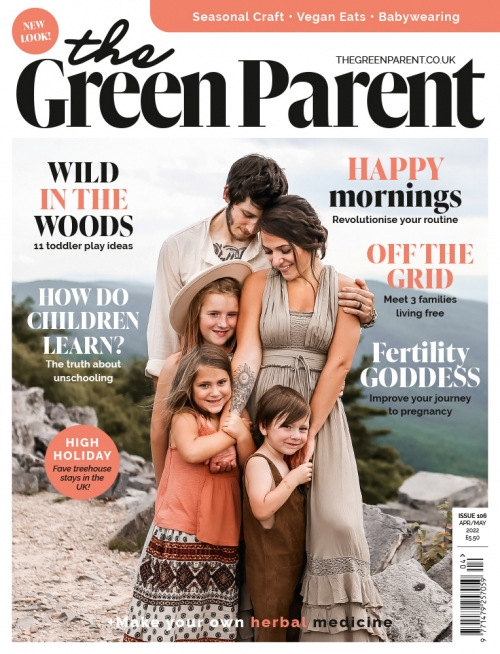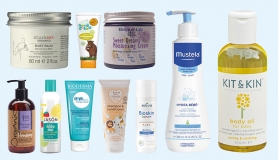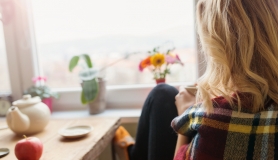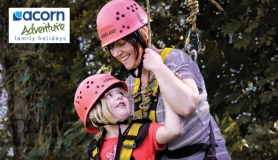“Mum!” I say excitedly down the phone. “Betty went to the toilet like a big girl today, while JM and I chanted ‘poo poo, poo poo’ beside her.”
“Goodness,” my mother replies, glossing right over the chanting. “Isn’t that rather bizarre for a two-week-old?”
Unusual, maybe, in a world where parents are advised to start toilet training their children at 24 months, but not bizarre. Betty and I are practicing Natural Infant Hygiene: forgotten skill and lost art of toilet communication – in simpler terms, pottying from birth.
CURIOSITY
At our mother and toddler group, the other mums are equally surprised. “What, you actually take her to the toilet?” they exclaim. “So young! How does it work?” Well, in the same way a pre-verbal baby can communicate hunger, joy and pain so, too, he can communicate the need for the loo. Natural Infant Hygiene, or Elimination Communication as it is also known, is the simple act of responding to this need by introducing your baby to potty from a very young age, even birth. Like other mammals, babies are born with an instinctive desire to not soil the nest, but rely on parents and caregivers to help them achieve this. Instead of using nappies, parents practicing EC learn to recognise the subtle signals that their baby is making and hold him or her over a toilet, potty or, indeed, any receptacle – so avoiding nappy rash, urine infections, environmental concerns and the potential drama linked with traditional toilet training.
POTTY FROM BIRTH
Claire Webb (36), a mum of three from Blackpool, has tried both disposables and cloth and is joyfully enthusiastic about EC, which she now practices in the home and out and about at the library, the beach and even at the cinema. “I used disposables with my eldest, Owen (8), who was toilet trained at three, cloth with my daughter Willa (6), who was dry by two, but my youngest, Tallis (6 months) has been pottied from birth; we caught the meconium in a yoghurt pot,” she says. “I think the midwives thought I was completely batty!”
DIAPER FREE
The idea of pottying a newborn can seem quite radical but it is, in fact, natural and logical, says Ingrid Bauer in her 2001 book Diaper Free: The Gentle Wisdom of Natural Infant Hygiene, in which she coined the terms Natural Infant Hygiene and Elimination Communication. What’s wrong, she writes, is that the image of soft skin clad in an extra-absorbent paper knicker is so ingrained in our popular imagination of happy parenting that it is no longer even questioned. Yet there is this other way.
“You can practice EC occasionally, or part-time, and still have the benefit of your child knowing that a diaper is not the only place to eliminate “
OTHER CULTURES
Women in Africa and Asia routinely carry their naked infants all day without ‘accidents’, explains Bauer. They learn to read their child’s signals – typically fussing, wriggling or making a specific face – and simply hold them in position in an appropriate place, cueing them at the same time so the child learns to associate a particular sound with the act of going to the toilet.
The obvious differences between life in much of the developing world – open sanitary systems, warmer weather, fewer clothes, and a culture in which bodily functions are not taboo – and life in the West means many parents here are unable to see how EC could be an option for them. It is true that EC is often practiced by attachment parents because carrying your baby close and co-sleeping make it easier to pick up on the signals your baby is sending out, but really any parent can have a go.
MODERN LIVING
“People wonder if it is going to be too much work for them, but it’s actually a lot easier to quickly potty a baby than it is to wipe and clean and change,” says Christine Gross-Loh, author of Diaper Free Baby:The Natural Toilet Training Alternative, a guide on how to adapt EC for modern living. With so many other pressures on parents, she realises that it is not always possible to have children ‘nappy free’. “You can practice EC occasionally, or part-time, and still have the benefit of your child knowing that a diaper is not the only place to eliminate,” she says. It’s all part of a gradual transition towards toilet independence.
MAKING IT WORK
Gross-Loh, a Harvard PhD and mum-of-four who divides her time between Boston and Tokyo, refers to the Diaper Free movement as “freedom from the idea of exclusive reliance on diapers” and advises choosing key times, such as on waking or after nursing, to first offer what she calls a ‘pottytunity’. Indeed, many parent practicing EC in Europe and the United States still use cloth or disposable nappies as back up. Rebecca Neal (36), from Islington, north London, started ECing her daughter Beatrice when she was five days old. “EC is not really presented to parents as an option,” she says. “When it is, people don’t realise how flexible it is. I think parents have this internal pressure where they think it must be all or nothing, but EC can be fully nappied or with no nappy at all.”
CLEAN AND EASY
People also worry that it is going to be messy, says Rachel Richardson (37), a drug aftercare worker for a London council. It irks her how EC is always presented as ‘extreme’ parenting because some parents choose to let their children go without nappies. She started EC with her daughter when she was four months old. “I was inspired to start EC once I realised that it could be done in a way which is compatible with modern life, and living in a clean house with white rugs,” she says.
OUTSIDE THE HOME
EC children are typically, but not always, toilet independent from about 15 months, when they are able to communicate their need through words or learnt signals and get themselves to the pot.
“When my daughter started daycare at age two, she was pretty toilet independent,” remembers Rachel. “The staff at the nursery were delighted that they didn’t have to put any work into toilet training her, as this was quite a heavy part of their workload for the other two- to three-year-olds. They quickly grasped the concepts of EC and have said that they would happily support younger children being ECed in their care.”
POTTY TRAINING EXPECTATIONS
So why are parents advised to start training at 24 months? It’s about managing parents’ expectations, says Dr Graham Clayden of Kings’ College London and consultant paediatrician at Evelina Children’s Hospital, Guy’s and St Thomas’ and avoiding disappointment. Over the years, he has seen too many children with potty training related problems come through his doors. “When the stomach fills there is a gastro-colic reflex,” he says, “which causes the lower bowel to fill and defecation is then precipitated. Lots of babies defecate within 20 minutes of filling their stomachs. If that becomes totally predictable, yes, why not catch it – save a nappy, save the planet.”
But this should not be mistaken for voluntary continence, he warns. When children reach a certain age and have learnt to stand, walk and control the muscles around the lower abdomen a little bit, distracted by the world around them, they may suddenly poo or wee elsewhere. “And [some] parents get terribly upset, because what they see as continence that has been achieved is now lost.”
Parental disappointment or anger over potty accidents can have a terrible impact on the child and lead to health issues such as chronic constipation, stool witholding and constipation that can take years to overcome. Too many people try to accelerate the stages of child development and become competitive in the process, Dr Clayden says, which is why parents are advised to wait.
“The idea of getting potty trained early as some sort of social success is destined to produce a whole bunch of kids that then fail,” he counsels. “If, on the other hand, your baby finds that it is fun to poo in a potty then great, there’s no harm in it.”
GENTLENESS AND FUN
That is one point on which everyone agrees: gentleness, communication and fun are the order of the day. In the EC community, any kind of rushing or coercion is heresy. Christine Gross-Loh even thought twice about having ‘toilet training’ in the title of her book. “It’s not toilet training or potty training in the traditional sense. It’s just helping care for your baby’s elimination needs – some people do that with diapers, some people hold their baby over a potty.”
CONNECTION
Early toilet independence is just one side-benefit, not the goal, agrees Melinda Rostein of Diaperfreebaby.org, a not-for-profit information site that she runs from her home in Massachusetts and which now has an international network with local groups and mentors in over in 11 countries. “The most beneficial thing about EC is the connection and relationship of trust that a parent will build with their child.”
“The result of this bond is that EC children have confidence in their toileting abilities, have clean, healthy bodies, understand how their bodies work, communicate, and have no feelings of inadequacy when ‘accidents’ happen,” Rostein says.
MORE THAN WORDS
And this is why Claire, Rebecca, Rachel and all the other parents I speak to are so enthusiastic about their experiences. Of all the benefits, it is the amazing journey of discovery that EC has enabled them to undertake with their children that they value the most. “Don’t worry about mess, getting it perfect, or what other people think – just have fun with it,” says Claire. “The best time for me is first thing in the morning, when I sit Tallis on the potty and she does a big poo and loads and loads of wee and she’s just grinning the whole time.”
Not everyone’s journey has been easy. There have been moments of regression, of course, and of frustration and change, but mostly of joy through forging this communication based on so much more than words.
With this in mind I look at my daughter (now four months) as she starts to snuffle and grunt. I pick her up and hold her over the bathroom washbasin. She looks back at me in the mirror, giggles and smiles. “Poo poo, poo poo,” I say. And, for the moment at least, she does.
Another article on Elimination Communication appears in Issue 33 of The Green Parent magazine, order a copy here.







